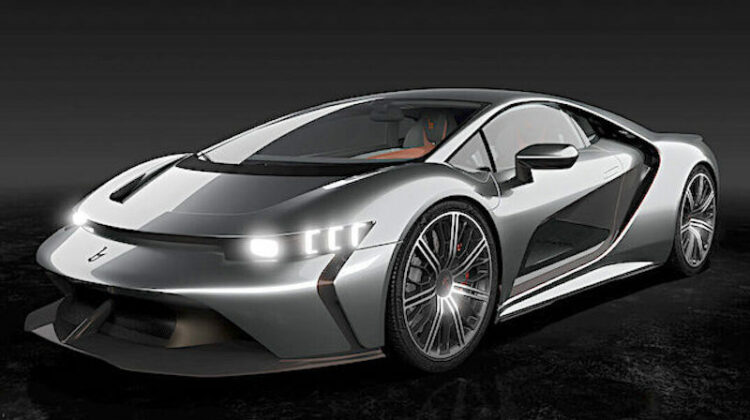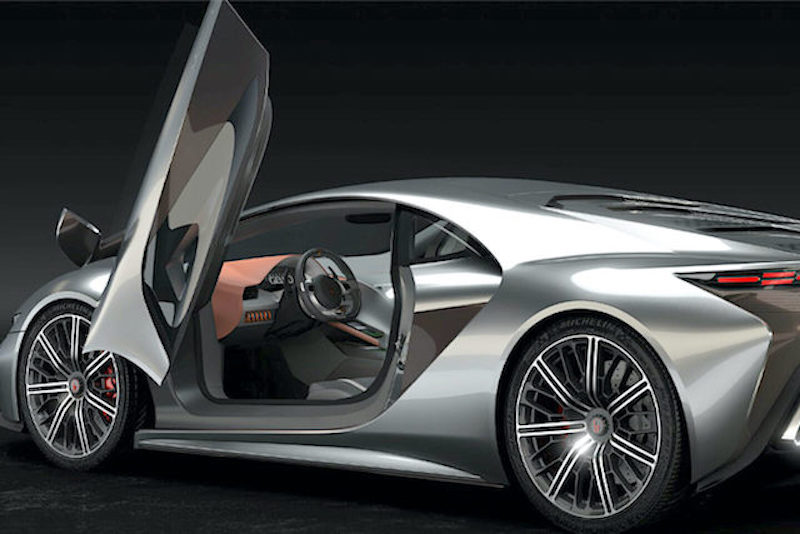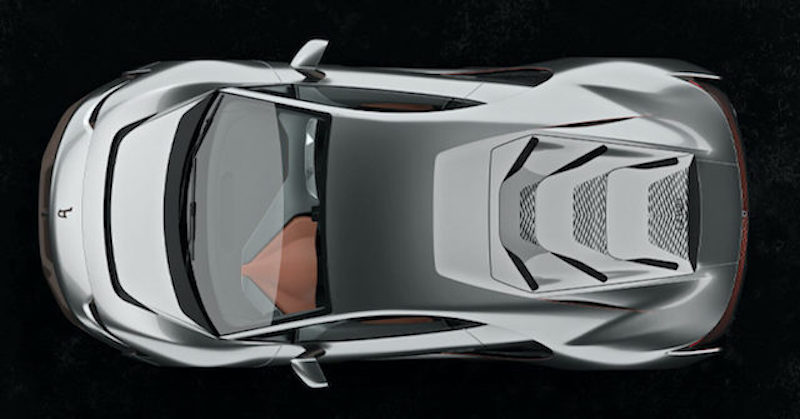
Italian coachbuilder Bertone has partnered with a US recycling company to develop a hypercar that will run on fuel made out of plastic waste.
The renowned styling house celebrated its 110th anniversary in 2022 by penning the GB110, of which only 33 will be built. Bertone CEO Jean-Franck Ricci says the first GB110 will be delivered early in 2024.
Each one is expected to cost seven figures and be “akin to a piece of art” and allow potential owners to choose a series of modifications to suit “unique tastes and identity”.
Bertone says the GB110 will have “strong acceleration and low weight” and powered by an internal combustion engine using a petroleum product from waste-to-fuel specialist Select Fuel, which has its headquarters in Henderson, Nevada.
Nothing yet about the origin and capacity of the engine, only that it will generate around 820kW/1100Nm for a top speed of 380km/h, a 0-100km/h time of 2.8 seconds, and a redline of 8400rpm. It is expected to drive all four wheels via a seven-speed gearbox.

CEO Ricci says Select Fuel has developed a patented technology to convert polycarbonate materials into renewable fuel. “We believe that de-pollution will require different solutions with combinations of technologies.
“Plastic waste needs to be treated as a valuable resource. Through our partnership with Select Fuel we take what was once waste and convert it back into its original form.”
Bertone borrowed cues for the GB110 from such so-called ‘Italian wedge’ designs as the Lamborghini Countach. “The GB110 is continuing Bertone’s automotive legacy and is a contemporary interpretation of the Bertone DNA,” said project and design manager Giovanni Sapio.
“It’s paying homage to pioneering Bertone designs from the ‘50s and ‘70s, merging the soft, rounded lines of the ‘50s with ‘70s style sharp edges. It has been sculpted for a timelessly standout presence.”
Bertone was founded in 1912 by Italian automobile designer Giovanni Bertone. It made the switch from carriages to cars after World War I when marques like Fiat and Lancia tapped the coachbuilder to design their signature saloon bodies.
At its height in the ‘60s, the brand would become most known for models like the Lamborghini Miura and Espada, as well as concept cars for Alfa Romeo and a few concepts of its own.
The company went bankrupt in 2014. Earlier in 2022, businessmen brothers Mauro and Jean-Franck Ricci acquired the rights to the brand and set about reviving it, starting with the GB110.

Select Fuel says it converts cleaned and shredded plastics into liquid fuel. “We recognise that plastic waste is a major environmental problem,” it says on its website.
‘We have committed to developing technologies that convert polycarbonate materials into renewable and sustainable fuels. With our cutting-edge advanced-plastics-to-fuel technology, Select Fuel products can be used in many different applications.” It doesn’t say how its patented process works.
Plastics are hydrocarbons that are made from petroleum. Researchers converting plastics back to liquid fuel have typically used a process called pyrolysis, which requires heating the plastics at a high temperature.
But a team from Purdue University in the US may have accelerated the recycling process. It used a technique called hydrothermal processing. Others have employed it before to convert other types of plastic feedstock to oil, but the yield of those processes has been low.
Purdue researchers placed the poplypropylene in a reactor filled with water, and heated it up to temperatures ranging from 380–500°C for up to five hours at a pressure of 23 Megapascals, or 3.3 million pounds per square inch. At the high heat and pressure, water breaks down the plastic and converts it into oil.
The researchers were able to transform 91% of the plastic into oil. The oil, which is a mix of different hydrocarbon compounds, can be used to make buildings blocks for gasoline and other fuels and chemicals.
• Bertone says the GB110 is just the first in a new line of limited-edition cars from the company.
